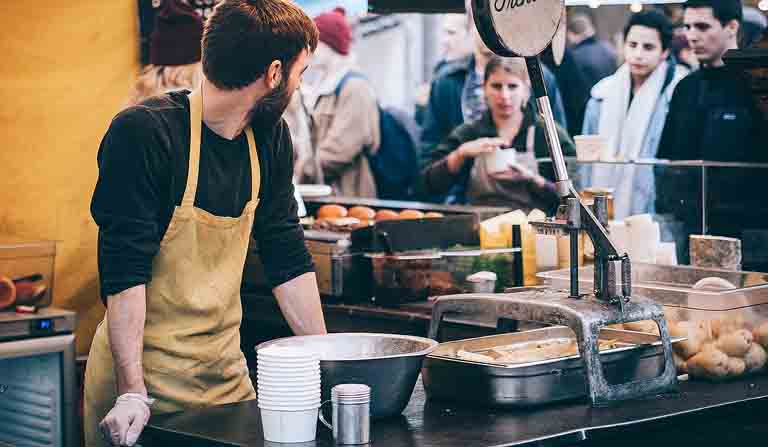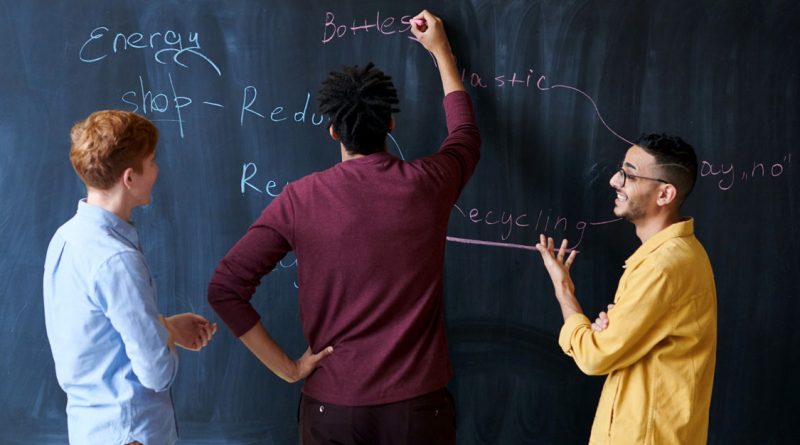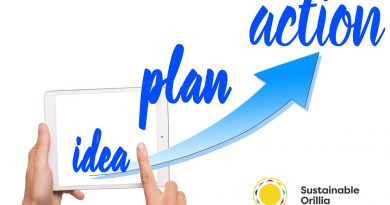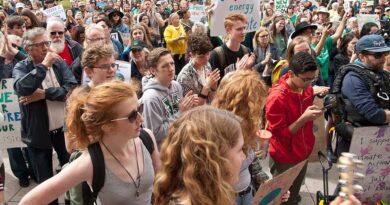Top 10 Lessons From COVID-19 Applied to Climate Change (Part 2)
By Fred Larsen – Special to SUNonline/Orillia
At Sustainable Orillia our goal is to encourage our community – and the larger society – to move toward sustainable living and, in doing so, to confront the climate crisis threatening our future. Accordingly, we offer the following transferable lessons with the hope what we learn from this pandemic will help us reduce and/or mitigate the even greater threats coming our way from the climate crisis. As you’re reading them, please ask yourself, “How can we use this crisis to make things better?”
LESSON 6: BUSINESS AS USUAL IS A THREAT TO HUMAN LIFE ON EARTH.
COVID-19: This deadly and disruptive pandemic has roots in the world’s current economic model – the pursuit of infinite growth at the expense of the environment on which our lives depend. As we destroy natural habitat we come in closer contact with wildlife and the viruses they carry. Both Ebola and COVID-19 seem to have jumped from wild species to humans. Scientists warn of further viral threats, some more deadly than COVID-19, if we continue with environmental destruction across the world.
CLIMATE CRISIS: Promising to be even more deadly and disruptive to human life, this crisis has arisen because of the dependence of our economy on fossil fuels coupled with the concept of unlimited growth. Yes, reducing our use of fossil fuels and other natural resources (our natural capital) will cause disruptions in our economy, but it is clear a future of devastated forests, polluted waters, plastic-filled oceans, and exhausted, drought-stricken farmlands has to be avoided. Governments must pursue alternative energy sources, reduce pollution and waste, and create an economy which circulates resources instead of always demanding new ones. It is not just human health and life that is at stake, but the health of all life on the planet.
LESSON 7: THE MAJORITY OF PEOPLE CARE ABOUT THE COMMON GOOD AND WILL MAKE SACRIFICES TO PROTECT THE COMMUNITY.
COVID-19: We see the vast majority of people in our communities taking the required steps to protect themselves and others from the virus. Most people are staying home as ordered, are social distancing, lining up at grocery stores – in short, temporarily suspending personal freedoms to prevent the spread of the virus in their communities to keep everyone safe.
CLIMATE CRISIS: Since climate change will affect different parts of the globe in different ways, we have to recognize that human beings are family no matter where they live. Actions in Canada need to be taken to prevent harm coming to people who live in Canada and in other parts of the world. Without immediate and aggressive actions, we will see, potentially, the deaths of millions – a death toll far exceeding what we have seen so far with COVID-19. Surely it’s time to re-think our notions of community.
LESSON 8: A CRISIS WILL EXACERBATE THE PREVIOUS CONDITIONS EXPERIENCED BY VULNERABLE PEOPLE.
COVID-19: The pandemic has revealed the vulnerability of certain groups of people in our society: people who work in jobs that, until now, have been undervalued and low-paying (personal support workers, food prep workers, temp workers, farm workers, warehouse people, delivery people), not to mention the homeless, the disabled living on their own, and seniors living in long-term care facilities. Ironically, the pandemic has also revealed that many of these people are the essential workers our society needs to ensure food supplies and a strong, healthy society.
CLIMATE CHANGE: The same groups of people in our society will be vulnerable to floods, severe storms, heat waves and cold snaps. A basic income plan in Canada, among other strategies, would alleviate some of the problems these people face. The climate crisis will also hit poorer, more vulnerable nations around the world, as well, particularly those who face rising ocean levels and drought conditions. We are already seeing economic migrations of people. We will see more climate migrations involving millions of people unless we act now to develop a new circular economic model which will serve people and the planet more justly.
LESSON 9: THE ECONOMY EXISTS TO SERVE THE PEOPLE, NOT THE OTHER WAY AROUND.

COVID-19: The pandemic has resulted in greater recognition, and in some cases, improved compensation, for many of the people who do jobs which have been, up to now, undervalued. Grocery store staff, clerks, truck drivers, cleaners, personal support workers, agricultural workers – a whole range of people in jobs that were more or less overlooked in our society, and often underpaid – are now recognized for the important work they do. COVID-19 is exposing stark socio-economic inequities. We are beginning to understand the health of individuals and of our communities are as important to our daily lives as the success and profits of our businesses.
CLIMATE CRISIS: The old mantra of “it’s the climate or the economy” is no longer either accurate or acceptable. The effects of climate change, if unchecked, will mean disruptions in our economy which will make COVID-19 look like the dress rehearsal. It will also mean global changes leading to human suffering on a scale vastly greater than brought about by COVID-19. The current fossil-fueled economy must change and our wasteful use of planetary resources must stop in order to protect future generations on this planet.
LESSON 10: WE HAVE A ONCE-IN-A-LIFETIME OPPORTUNITY TO THINK ABOUT THE CHANGE WE’D LIKE TO SEE IN OUR COUNTRY AND ACROSS THE WORLD
COVID-19: “At no other time, ever in our lives, have we gotten the opportunity to see what would happen if the world simply stopped. Here it is. We’re in it,” said Julio Vincent Gambuto in a recent Forge magazine column. “We have a chance to define a new version of normal . . . and to bring back what works for us, what makes our lives richer, what makes our kids happier, what makes us truly proud.”
CLIMATE CRISIS: During this COVID-19 downtime, we have the opportunity to imagine what a more sustainable world looks like – smogless blue skies, waterways that are unpolluted and filled with life, a world with much reduced GHG emissions, a world of alternative energy sources and different ways of working and going about our daily lives. A world which focuses on people and relationships, on caring for everyone and all living things on our planet, rather than on the relentless consumer treadmill we have been on, especially throughout the late 20th and early 21st centuries. It’s time for a new normal respecting Earth and life itself.
(Photos by Pexels)




